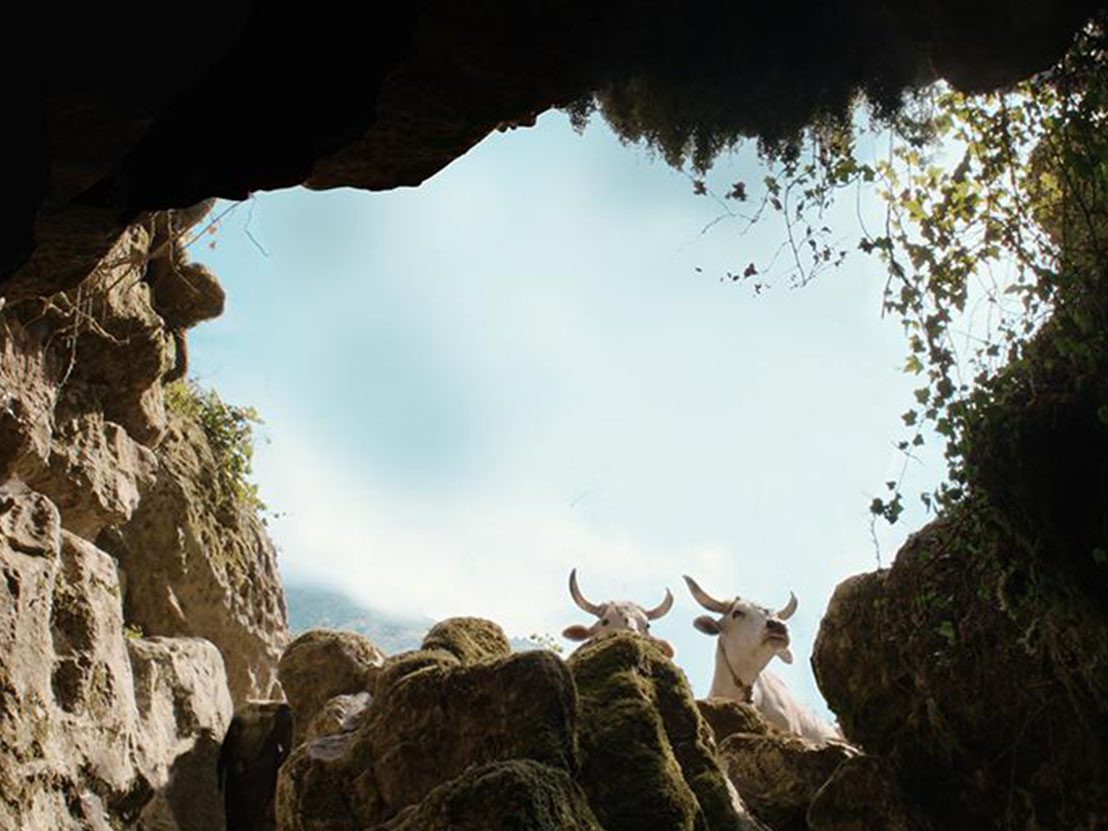
This unique journey to the centre of the earth is a stunning highlight of the 2021 Venice Film Festival.
It has been 11 long years since the Italian filmmaker Michelangelo Frammartino graced us with his wonderful, goat-filled doc-fiction hybrid, Le Quattro Volte. There were, indeed, so many goats on screen that it was often affectionately referred to as “The Goat Movie”, as in, “You must see the… etc”. Il Buco (The Hole) is his long awaited follow-up, and those looking to continue the little name game that started so many years ago could refer to it as “The Spelunking Movie”. Or, if you wanted to make things even easier on yourself, you could just go ahead and call it a masterpiece.
There’s a way of watching Il Buco that may take a little time to attune to, in the same way you might have to while watching a Jacques Tati movie. It’s a question of image navigation: Frammartino shoots mainly in long shots and the manner in which you take the story in is, as above, a bit of a game. You must first work out where your attention is supposed to be focused, and then if you do follow your instincts, you must then calculate whether you are missing out on details elsewhere. There might be a clue, like a dim flicker of light in the middle distance, or some rumbling sounds emanating from a certain area off-screen. But each shot needs to be unlocked.
On that note: filmmakers vocally pleading with audiences to see movies in the cinema – or the biggest screen available to them – is currently in vogue despite valid protestations regarding accessibility. One hopes that Frammartino joins the chorus, as it genuinely seems as if he has made a film which only functions in its intended way by being experienced in the enclosed, sensory-deprived environs of a pitch black and completely silent cinema. And one with a top spec sound system for that matter. There is no doubt that seeing this on a laptop or a phone would yield a completely different experience – and a lesser one at that.
This dialogue-free voyage into the unknown takes its inspiration from a spelunking mission in Calabria during the 1960s, as a close-knit crew roll up to a nearby village and then head out to the wilderness where they pitch up next to the Bifurto abyss – the third deepest sinkhole cave ever discovered. Frammartino captures the rag-tag team’s derring do as – with jaw-droppingly lo-fi means – its members lower themselves deep into the Earth, using flaming news magazines as a way to see how deep the hole plunges. The film is a fond recreation of how this cave was discovered.
As this group cast their eyes on landscapes never before seen, a lone farmer sits on a hillside tending his herd and is suddenly struck down with illness. Frammartino draws heartbreaking parallels with the veins of the earth being prized open up by these intrepid explorers, and the veins of the farmer which are being blocked and calcified by the ravages of time and age.
It’s a magnificent piece of work, completely beguiling from end to end and one which wears its immense philosophical profundity with admirable lightness. In the spirit of its subject, the director offers us images of the like seldom seen in cinema, with each slow reveal of a crepuscular underground antechamber or a stalactite-filled wall gifting us a feast for the senses and soft-spoken hymn to human endeavour and the transcendent, mysterious beauty of the natural world.
Little White Lies is committed to championing great movies and the talented people who make them. But to keep going, and growing, we need your support. Become a member today.
Published 4 Sep 2021

We have teamed with MUBI and the ICA to host a 35mm screening of this true original.

Olivia Colman displays her dark side in Maggie Gyllenhaal's sun-bleached psychodrama about motherhood in crisis.

Timothée Chalamet brings a commanding central presence to this stirring new adaptation of Frank Herbert’s ‘Dune’.